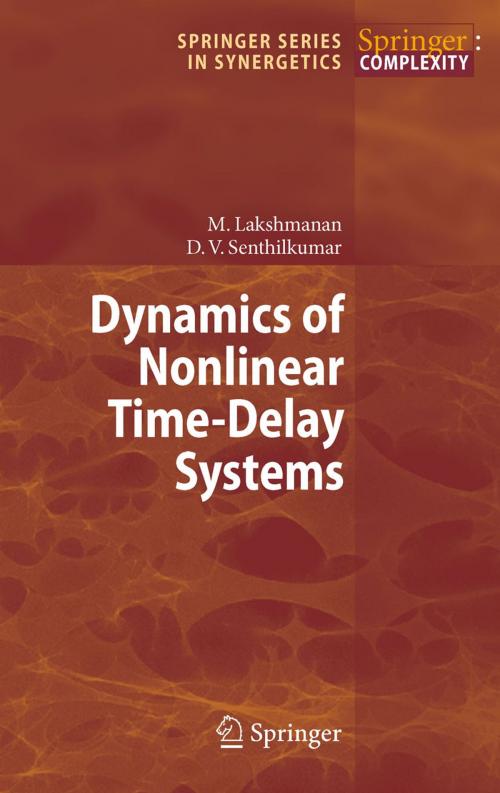Dynamics of Nonlinear Time-Delay Systems
Nonfiction, Science & Nature, Science, Physics, Chaotic Behavior, Technology, Engineering, Mechanical, Mathematics| Author: | Muthusamy Lakshmanan, Dharmapuri Vijayan Senthilkumar | ISBN: | 9783642149382 |
| Publisher: | Springer Berlin Heidelberg | Publication: | January 4, 2011 |
| Imprint: | Springer | Language: | English |
| Author: | Muthusamy Lakshmanan, Dharmapuri Vijayan Senthilkumar |
| ISBN: | 9783642149382 |
| Publisher: | Springer Berlin Heidelberg |
| Publication: | January 4, 2011 |
| Imprint: | Springer |
| Language: | English |
Synchronization of chaotic systems, a patently nonlinear phenomenon, has emerged as a highly active interdisciplinary research topic at the interface of physics, biology, applied mathematics and engineering sciences. In this connection, time-delay systems described by delay differential equations have developed as particularly
suitable tools for modeling specific dynamical systems. Indeed, time-delay is ubiquitous in many physical systems, for example due to finite
switching speeds of amplifiers in electronic circuits, finite lengths of vehicles in traffic flows, finite signal propagation times in biological networks and circuits, and quite generally whenever memory effects are relevant.
This monograph presents the basics of chaotic time-delay systems and their synchronization with an emphasis on the effects of time-delay feedback which give rise to new collective dynamics.
Special attention is devoted to scalar chaotic/hyperchaotic time-delay
systems, and some higher order models, occurring in different branches of science and technology as well as to the synchronization of their coupled versions.
Last but not least, the presentation as a whole strives for a balance between the necessary mathematical description of the basics
and the detailed presentation of real-world applications.
Synchronization of chaotic systems, a patently nonlinear phenomenon, has emerged as a highly active interdisciplinary research topic at the interface of physics, biology, applied mathematics and engineering sciences. In this connection, time-delay systems described by delay differential equations have developed as particularly
suitable tools for modeling specific dynamical systems. Indeed, time-delay is ubiquitous in many physical systems, for example due to finite
switching speeds of amplifiers in electronic circuits, finite lengths of vehicles in traffic flows, finite signal propagation times in biological networks and circuits, and quite generally whenever memory effects are relevant.
This monograph presents the basics of chaotic time-delay systems and their synchronization with an emphasis on the effects of time-delay feedback which give rise to new collective dynamics.
Special attention is devoted to scalar chaotic/hyperchaotic time-delay
systems, and some higher order models, occurring in different branches of science and technology as well as to the synchronization of their coupled versions.
Last but not least, the presentation as a whole strives for a balance between the necessary mathematical description of the basics
and the detailed presentation of real-world applications.















